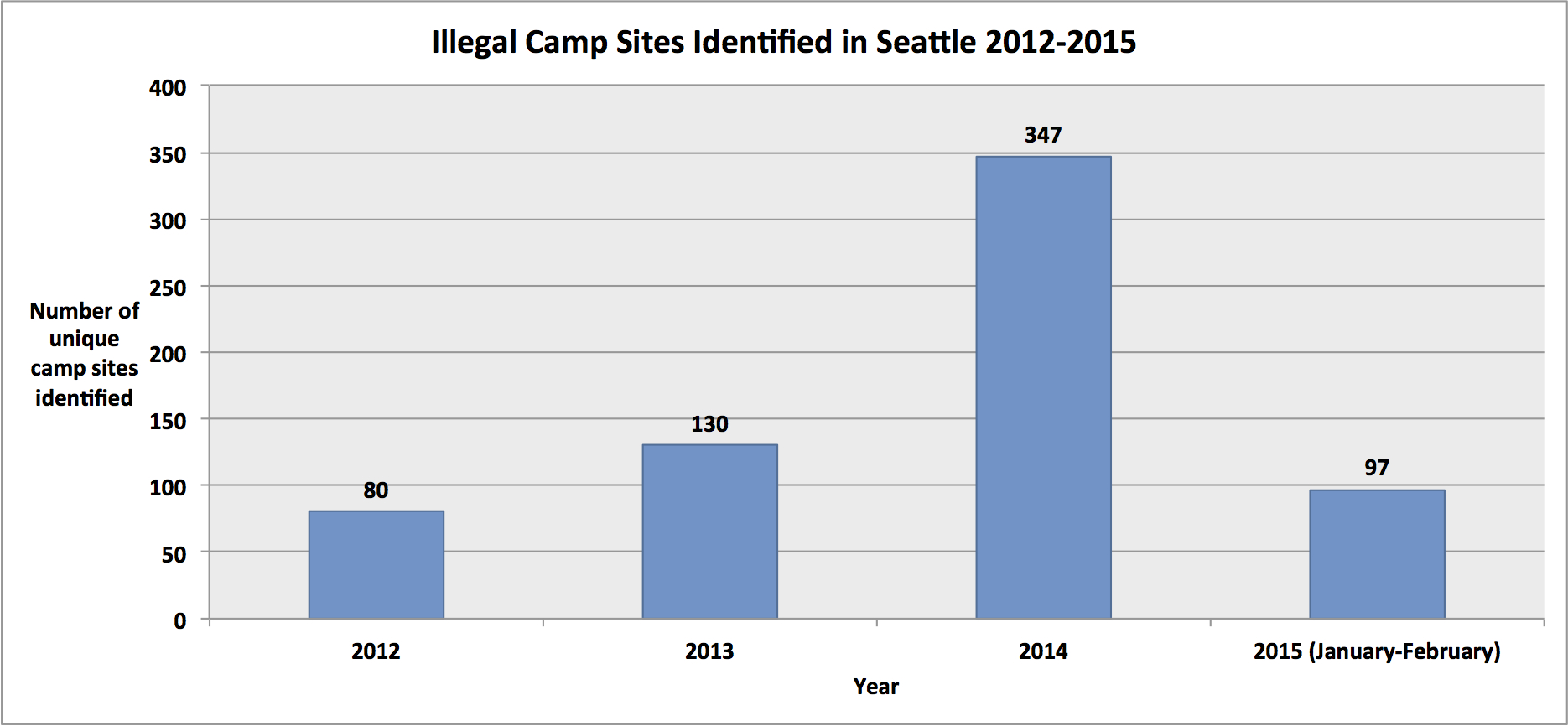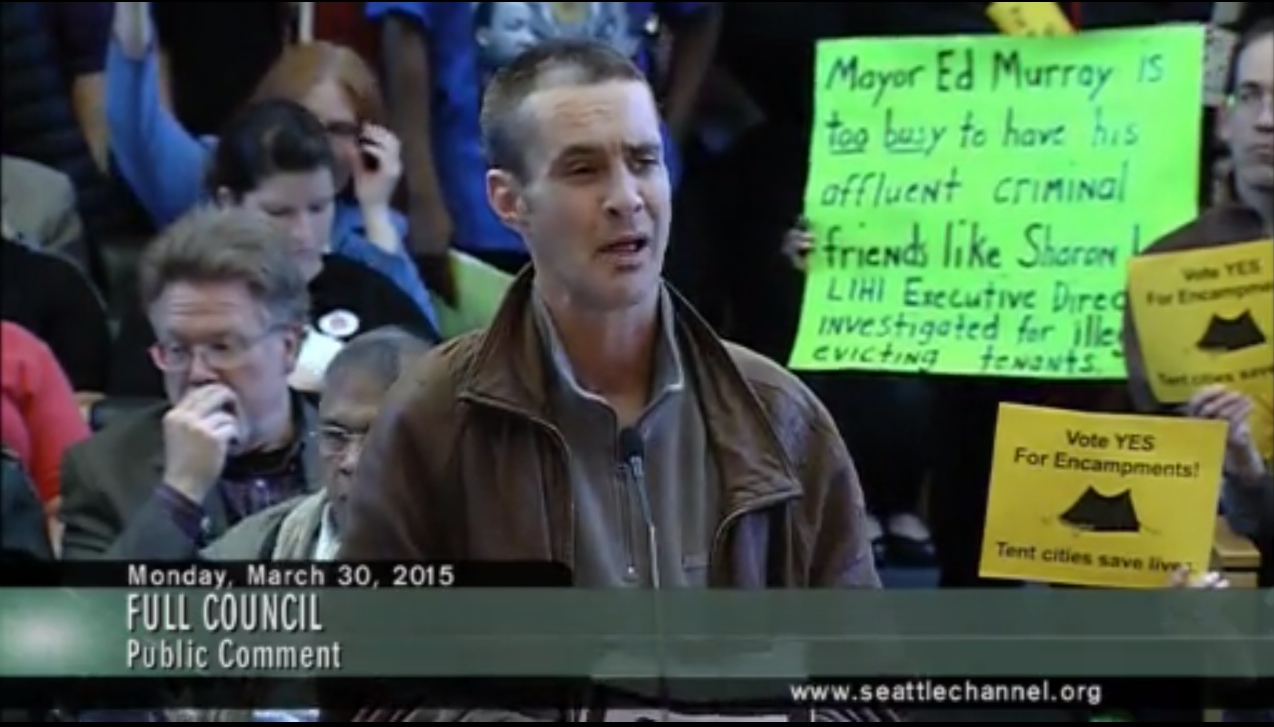Homeless Encampments Present Decisionmaking Challenges for City Leaders

An example of a homeless encampment in Sacramento, California. Rich Pedroncelli / AP File Photo

Connecting state and local government leaders
As some local governments regularly turn to camp evictions, others try to regulate site locations. But too much municipal management of encampments can become problematic.
Near the center of Des Moines two rivers meet. Snaking eastward through Iowa’s capital is the Raccoon, which empties into the Des Moines just south of the city’s minor league ballfield, Principal Park, home of the Iowa Cubs. Flanking the waterways is a network of recreational trails.
“It’s the nexus of a 300-mile trail system, so people from all over the state are passing through,” the city’s community development director, Phil Delafield, said referring to the area.
But the corridor of riverside trails is also where an estimated 50 to 60 homeless people spend their nights, typically camped in wooded areas along a 10- to 12-mile stretch of the two waterways.
The camp sites, according to Delafield, are generally concentrated south of Euclid Avenue (U.S. Route 6) on the east and west side of the Des Moines and on the north side of the Raccoon River.
Earlier this week, the city of Des Moines posted notices in these areas, telling campers they would have 10 days to move.
“This isn’t the first time that we’ve tackled this issue,” Delafield said as he discussed the encampments during an interview on Wednesday.
Plenty of other local jurisdictions deal with issues related to homeless camps and do so using various approaches.
Some are more aggressive than others.
In Albuquerque, for instance, a group of homeless campers has been evicted numerous times by local and state authorities from different locations around New Mexico’s largest city. Tensions between campers and police have been at times tense and confrontational. Last year’s incident where Albuquerque police shot James Boyd, a homeless camper with schizophrenia, touched off months of community protests.
In Des Moines, the city government typically carries out three campaigns to relocate campers annually, one in early spring, another in mid-summer and the third in the late fall. As with the other similar efforts that have taken place during the last four or five years, this latest one was prompted by complaints.
According to Delafield, trail users have said that campers shouted at them, acted drunk, and, at least in one case, menaced them with a large dog. For now, the city has no imminent plans to make any arrests. The goal is just to get the campers to move away from the trails.

The Des Moines River in downtown Des Moines, Iowa (Photo by Jean-Francois Rivard / Shutterstock.com)
“Our approach isn’t to criminalize homelessness,” Delafield said. On, or shortly after, the 10-day deadline, he said, crews accompanied by police for protection, will begin to clean up the area.
He explained that Des Moines tries to work with local service providers to reach out to the campers before they are required to move. “We generally know who most of these folks are,” he said. “They kind of know we’re not there to bust them, they know they just need to move on, for the most part they just go deeper into the woods.”
A 2014 report from the National Law Center on Homelessness & Poverty and a human rights clinic at Yale Law School found media reports documenting over 100 encampment communities, in 46 states, between 2008 and 2013.
Similar factors surface in most conversations about city policies toward the camps.
For example, there can be questions of whether it makes more sense to invest in permanent housing rather than spending on securing property or upgrades for encampments.
Also, how can a city approve homeless camp locations so they’re accessible to public transit and social services without upsetting local residents and business owners?
Cities have approached these issues in a variety of ways.
The Seattle City Council on Monday moved to broaden the city’s reliance on encampments to provide temporary shelter for some of the city’s homeless, approving legislation in a 9-0 vote that authorizes up to three new interim sites for as many as 100 people each.
In Oregon, the city of Portland set aside $846,000 last year to help cover the costs of relocating an encampment at the edge of the city’s Chinatown neighborhood. The mayor’s office is assisting with the search for property where one, or possibly two, new sites could be located.
The new Seattle sites, according to the legislation, would be allowed on property owned by the city, private landholders, or major educational organizations. For the most part, the camp properties would also need to be at least 25 feet from residentially zoned lots, though there are some narrow exceptions. The ordinance also says the sites need to be within a half-mile of a transit stop.
While there is no hard timeline for site selection, Councilmember Mike O’Brien said that Mayor Ed Murray’s office is in the process of assembling a list of possible options.
During an interview on Wednesday, O’Brien acknowledged the contrast between Seattle’s surging economy and the number of people sleeping on the city’s streets.
“We’re in a city now where our unemployment levels are extremely low and, you know, great job growth, almost all sectors of the economy are booming, and yet we have thousands of people who can’t afford to live in traditional housing,” he said.
“Some of that speaks to the cuts that have been made to programs like mental health over the past decade at both the state and federal level,” O’Brien added. “And I think a lot of it speaks to, there are people out there that are getting jobs and those jobs do not pay enough to rent a place.” He continued: “Rent here is not cheap.”
A count on the night of Jan. 23, 2015 found 2,813 people unsheltered in Seattle, according to figures compiled by the Seattle/King County Coalition on Homelessness.
Legal encampments are not new in the city. Under a 2011 ordinance, tent sites can obtain a six-month temporary use permit, if they are located on property owned or controlled by a religious organization. Illegal campers are also not uncommon.

(Source: Seattle Human Services Department)
A Seattle Department of Human Services spreadsheet, includes 347 unauthorized campsites that were identified in 2014.
Last September, about 20 campers caught the city’s attention when they established a camp on a busy stretch of sidewalk near the University of Washington. They later relocated to a church parking lot.
While encampments can prompt complaints and concerns, some in Seattle’s homeless community see the sites as a critical safety net.
During public comments at Monday’s City Council meeting at Seattle City Hall, Chauncey Moylan, a former tent site resident who said he currently lives in a shared shelter, urged the members to support the encampment ordinance.

“It’s safer than staying out in a doorway, and by yourself, and running solo,” said Moylan, pictured here on the city-run Seattle Channel. “Without the encampments, or without these shelters, I mean, a lot more lives are at stake.”
The site in Portland that is slated for an eventual relocation is known as Right 2 Dream Too, or R2DToo.
“It’s been sort of a model encampment,” said Dana Haynes, communication director for Portland Mayor Charlie Hales. “It’s a very good way for about 80 people a night to find shelter,” he added. “But they can’t stay there.”
The owner of the corner lot where the camp is located would like to sell the property, Haynes said. The mayor’s director of strategic initiatives, Josh Alpert, is currently helping to hunt for property where R2DToo can be relocated. He is also keeping his eyes open for an additional site as well.
The mayor’s office, Haynes said, is open to the idea of trying to replicate the R2DToo model in a second location. But he emphasized that the camp is self-regulated, not managed by the city. The success of a new camp, he said, would largely depend on its organizers.
“If you couldn’t find the right people to put it together, lightning would necessarily strike twice,” he said.
What is it about the current organizers that makes R2DToo work? “They have been good neighbors with the others in Old Town Chinatown, they have good working relations with the service providers and they are self-policing. If you’re stoned they don’t let you in, if you’re getting in fights they don’t let you in,” Haynes said. “It’s not us, it’s not ‘look what the city did.’ ”
According to information on a website for the Portland-based organization Right 2 Survive, Ibrahim Mubarak is currently president of R2DToo. His biography says that he is formerly “house-less.” Mubarak did not return a phone call asking to discuss the R2DToo site.
But Eric Tars, a senior attorney at the National Law Center on Homelessness & Poverty, and one of the editors of last year’s report on tent cities, said that the better models for encampments tend to emerge “organically” and are governed by the people who are living there.
Local governments, he said, can usually offer the most useful support by ensuring that people staying at the site are not evicted, or by providing amenities like trash containers or toilets.
In his view, too much city intervention can become problematic. “Once it turns into some mode of city-provided service provision it takes, in some ways, the responsibility away from the residents,” Tars said. “Then the administrative burden falls onto the city.”
While he believes that city-endorsed encampments are viable intermediate step toward addressing homelessness, Tars does not see them as a long-term solution.
“The fact that a city as large as Seattle is sanctioning a shanty town is an admission of failure, and I don’t think it’s something that we as Americans should accept,” he said during an interview on Wednesday. “By far and away the best practice for moving out an encampment is by moving those people into permanent housing.”
But for Des Moines, providing homeless campers with permanent housing is not an easy option, at least in the near term, according to Delafield. “We do have a brand new homeless shelter, it’s at capacity,” he said. “It was at capacity from day one.”
The city has considered creating a designated campsite for the homeless, he said, but there is no formal proposal. It’s also not an easy sell.
“The politics of that is very difficult, which neighborhood becomes the zone where that happens and what is the unintended impact,” Delafield continued. “The same kind of complaints you have at the trails you would have at those campgrounds.”
One other option Des Moines has considered is finding low-priced single family homes that could house three or four people who are homeless, he said. Another is repurposing old apartment buildings, hotels, or nursing homes, into transitional housing. But Delafield was skeptical that more housing alone would solve the problem of homelessness in Des Moines.
“I think every community comes to the same conclusion though: You’re not going to be able to build your way out of this problem,” he said. Pointing to issues such as substance abuse, mental illness, and post-traumatic stress disorder, he said, “The problems are too deep.”

NEXT STORY: States Consider Slapping Limits on Their Lotteries



